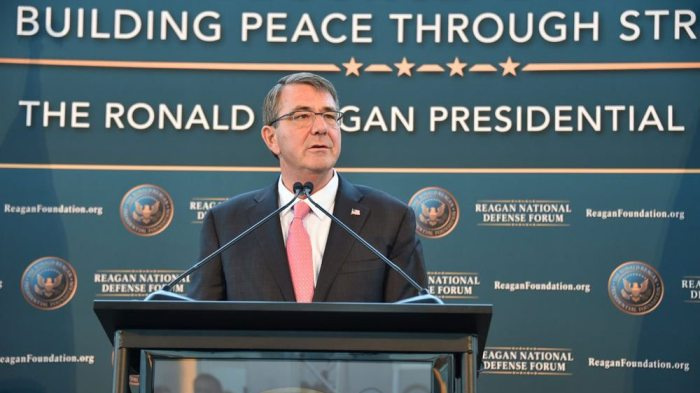Outsourcing the Battle against Iran

“If you look at where the Iranians are able to wield influence, they are in the game, on the ground” US Secretary of Defense Ashton Carter said in his recent interview with The Atlantic. “We don’t like it that they’re in the game on the ground, but they are in the game. There is a sense that some of the Gulf states are up there at 30,000 feet.” Carter has also criticized Arab states of the Persian Gulf for undervaluing "the hard business of training and disciplining ground forces and special-operations forces.”
Apparently, Americans were wishfully thinking that, following the nuclear agreement, Iran would reorient its Middle East policy, or at least engage in dialogue with Washington over conflicts in this region. That hope proved unrealistic; they are now attempting to provoke Arab states and rekindle the Iranophobia project. What Americans wanted after the nuclear deal was an Iran that would comply with US interests in the region. That scenario was not realized and now Washington is seeking new solutions to control Iran's regional power.
Hence the call for Arab states of the Persian Gulf to reinforce their ground forces. In this way, the US could carry on its critical regional goals in the region through proxy wars. Americans abstain from dispatching ground forces to the Middle East after previous unsuccessful experiences and the casualties. If Arab states of the Persian Gulf capitalize on ground troops, Americans and Western countries could take the responsibility of planning for the battle and carrying out air strikes.
With increasing proximity between Iran, Russia, Syria and Iraq over regional issues and the battle against terrorism, the US, lacking resources to seriously engage in regional conflicts, is provoking its Middle East partners against the new alliance. Washington is also pondering the formation of its own alliance with Saudi Arabia, Turkey, and Israel. In this way, Americans can not only outsource their responsibilities to Arab countries, but also capitalize on arms sales.
Carter's remarks can be regarded as Pentagon's call for the launch of a new round of battles in the Middle East. The perfect example of this new plan can already be seen in Yemen, the poorest country of the Arabian Peninsula, where Saudi Arabia, the wealthiest Arab state along with some other countries of the region, Western states and Al-Qaeda, has failed to achieve even its minor goals after eight months of battle.
* This piece was originally published in the website of Alef, affiliated with Ahmad Tavakkoli, a moderate conservative figure of the Principlist camp.

